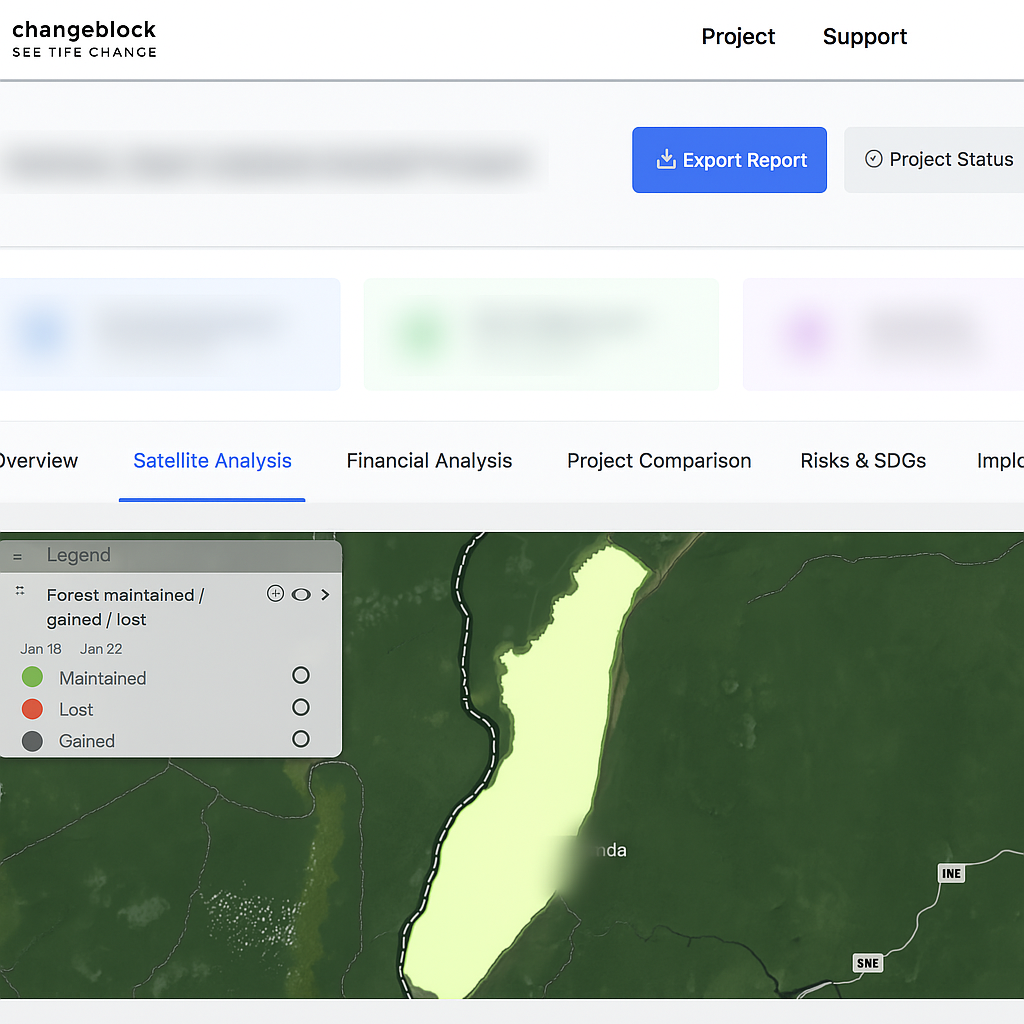Biochar Project in Zambia
Transforming agricultural waste into soil-enriching biochar, creating carbon credits while improving crop yields for smallholder farmers.

Project Overview
Smallholder farmers in rural Zambia face declining soil fertility and rising costs for agricultural inputs. The Biochar Project tackles these challenges by converting agricultural waste into biochar—a high-carbon additive that rejuvenates depleted soils and locks carbon away for hundreds to thousands of years.
By implementing biochar production techniques at the community level, this project creates a sustainable cycle: agricultural waste is transformed into a valuable soil amendment, improving crop yields while sequestering carbon in the soil long-term. This process generates verifiable carbon credits that provide additional income for participating farmers.
Key Project Highlights
- Conversion of agricultural waste into biochar using low-cost, locally manufactured kilns
- Training and support for smallholder farmers in biochar production and application
- Rigorous monitoring and verification of carbon sequestration for credit generation
- Creation of new revenue streams for rural communities through carbon credit sales
Key Challenges
The project addresses several critical challenges facing smallholder farmers in Zambia:
Soil Degradation
Years of intensive farming without adequate soil management have led to depleted soils with low organic matter content, reducing crop yields and threatening food security.
Input Dependency
Farmers face increasing costs for chemical fertilizers, creating financial strain and dependency on external inputs that are often unavailable or unaffordable.
Waste Management
Agricultural waste is typically burned or left to decompose, releasing greenhouse gases and missing opportunities to create value from these materials.
Financial Barriers
Despite the potential benefits of biochar, several financial barriers have historically prevented adoption:
- Limited access to capital for technology adoption and training
- Lack of established carbon credit methodologies for biochar in agricultural settings
- Complex monitoring and verification requirements for soil carbon projects
Changeblock Originate's Role
Changeblock Originate provided comprehensive support to overcome these challenges and bring the Biochar Project to fruition:
Technical & Financial Support
Changeblock facilitated access to financing and project expertise through an easy-to-navigate process for credit generation. This included developing a robust business case, securing initial funding, and creating financial models that demonstrated the long-term viability of the project.
MRV & Compliance
Changeblock simplified the monitoring, reporting, and verification (MRV) protocols for biochar's carbon sequestration, easing the path to verified credits. This included implementing digital MRV systems, training local staff, and ensuring compliance with international carbon standards.
Revenue Diversification
Changeblock empowered farmers to sell carbon offsets derived from biochar, creating new income streams while enhancing soil productivity. This included establishing connections with buyers, negotiating favorable terms, and ensuring transparent distribution of benefits to participating communities.
Methodology Development
A critical contribution from Changeblock was the development and validation of a biochar carbon methodology specifically tailored for smallholder agricultural contexts in Africa. This methodology:
- Quantifies carbon sequestration from biochar application in tropical soils
- Accounts for emissions avoided from alternative waste management practices
- Incorporates simplified monitoring protocols suitable for rural contexts
- Ensures additionality and permanence of carbon storage
Results & Impact
The Biochar Project has delivered significant environmental, social, and economic benefits:
Increased Crop Yields
Farmers have seen average yield improvements of up to 20% after applying biochar to their fields.
Farmers Participating
Over 500 smallholder farmers have been trained and are actively implementing biochar practices.
Carbon Credits Generated
More than 5,000 verified carbon credits have been issued, representing 5,000 tonnes of CO₂e sequestered.
Long-term Benefits
Environmental Impact
- Permanent carbon sequestration in soil
- Reduced agricultural waste burning
- Improved soil health and biodiversity
- Reduced chemical fertilizer use
Socioeconomic Benefits
- New income streams from carbon credits
- Reduced dependency on expensive inputs
- Knowledge transfer and skill development
- Community reinvestment of carbon revenues
"The biochar project has changed how we farm. Our soils are healthier, our crops are stronger, and the extra income from carbon credits has helped us invest in our children's education and better equipment for our farms."
— Mutinta Hichilema, Farmer, Southern Province, Zambia
Future Outlook
Building on the success of the initial phase, Changeblock is working with partners to scale the Biochar Project across Zambia and into neighboring countries:
Expansion Plans
- Scaling to 5,000+ farmers across multiple provinces in Zambia by 2026
- Developing regional biochar production hubs to improve efficiency
- Integrating with complementary sustainable agriculture initiatives
- Exploring additional revenue streams from biochar co-products
Get Involved
Changeblock continues to seek partners and investors interested in supporting the expansion of this impactful project. Whether you're looking to purchase high-quality carbon credits, invest in project development, or explore similar initiatives in other regions, we invite you to connect with our team.
AI-Driven Project Analysis Tools
Our proprietary AI technology platform, Abionti, provides comprehensive analysis and evaluation of environmental projects, enabling data-driven decision making and maximizing financial returns through advanced machine learning.
Satellite Analysis
Advanced satellite imagery analysis tracks forest cover changes, land use patterns, and environmental impacts over time with precision. Our AI tools detected a 12% increase in forest cover in the project target area.
Financial Forecasting
Sophisticated AI financial models project carbon credit generation, revenue streams, and ROI with remarkable accuracy. The FusionOne project achieved 95% alignment with our initial financial projections.
Project Comparison
Benchmark your project against similar initiatives worldwide to identify optimization opportunities and best practices. Our analysis provides valuable insights for enhancing project performance and outcomes.
Risk Assessment
Comprehensive risk analysis identifies potential challenges and mitigation strategies, ensuring project resilience. Our risk assessment tools help streamline the certification process and improve project outcomes.

